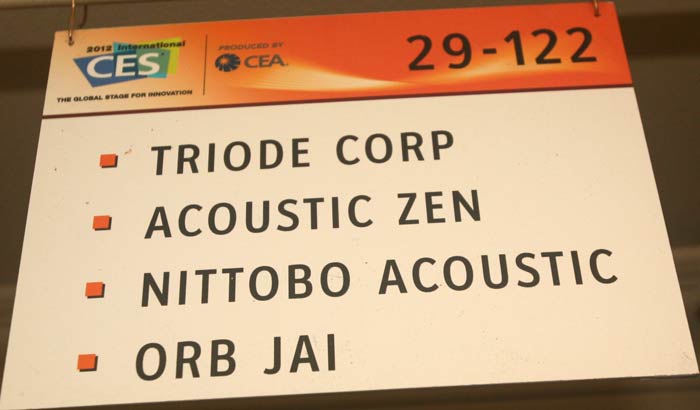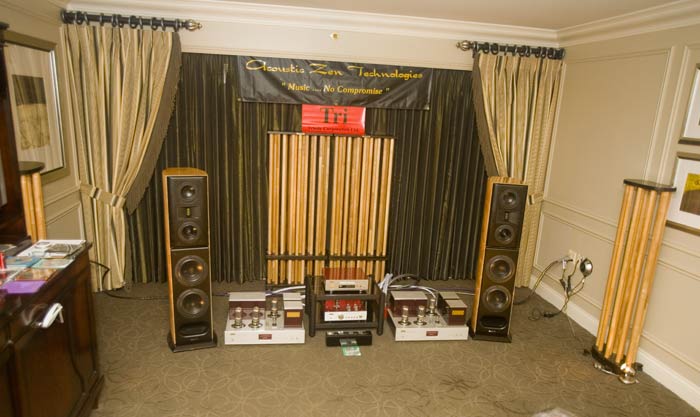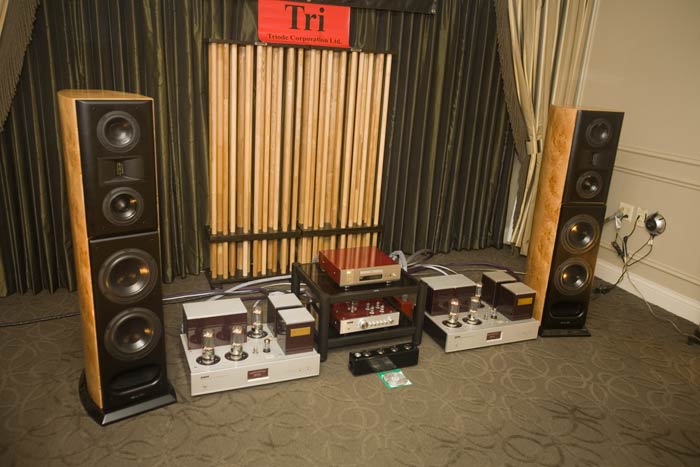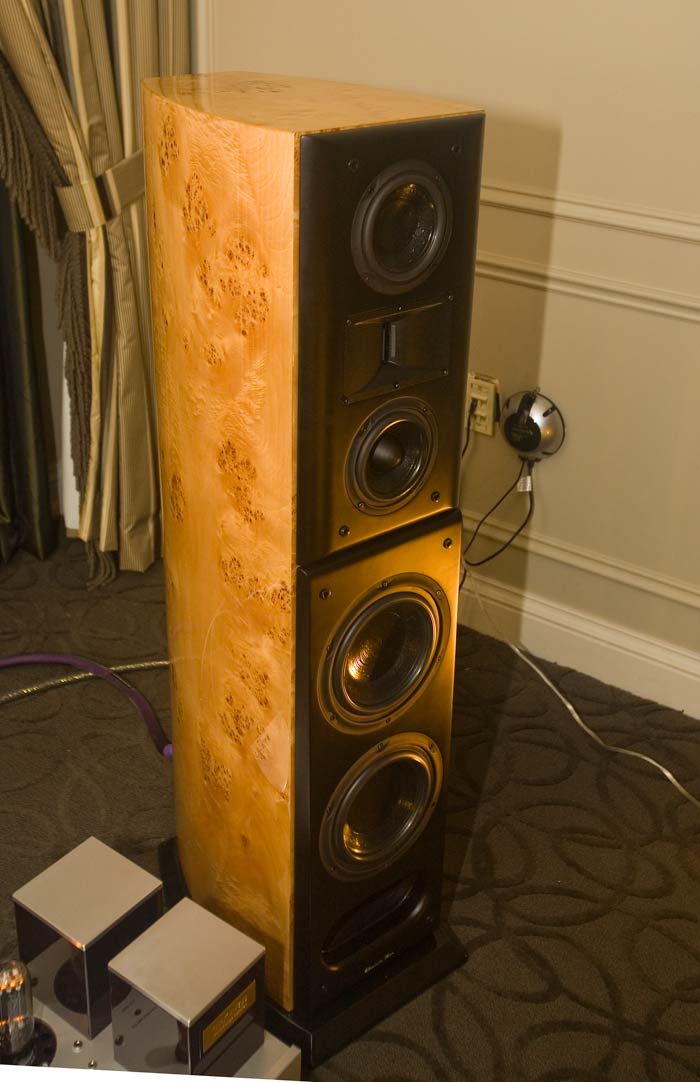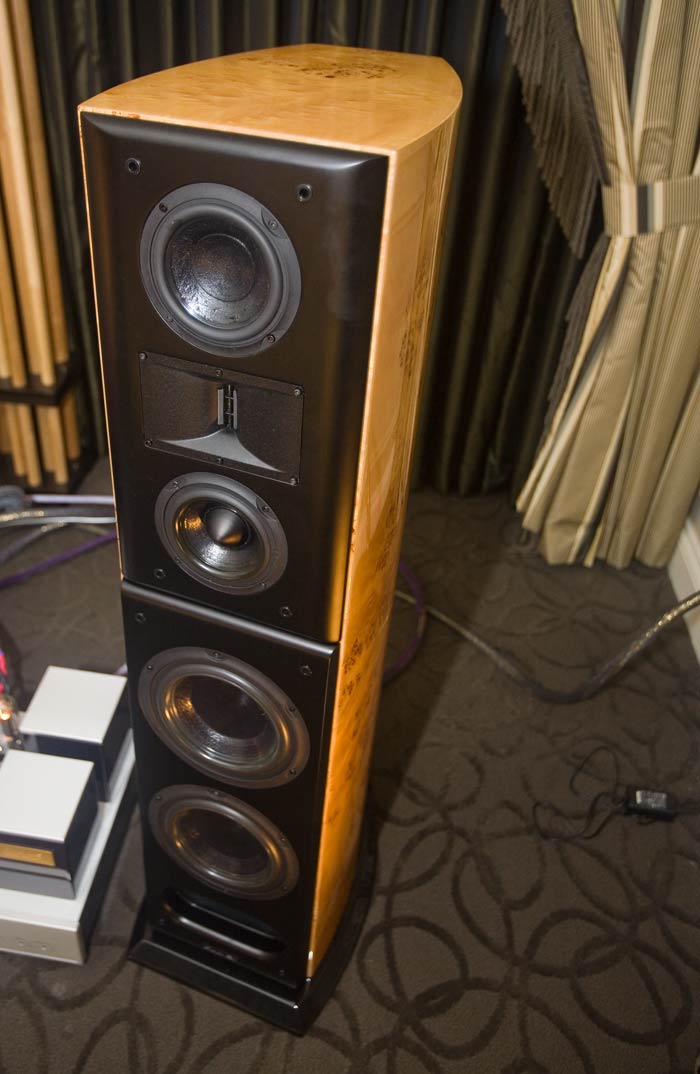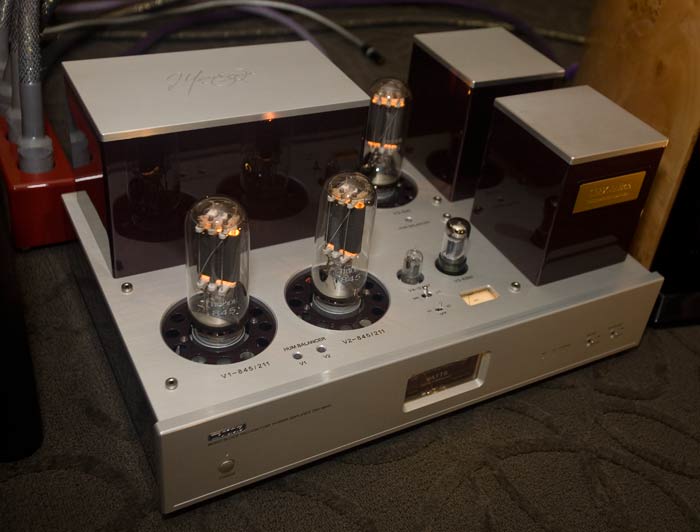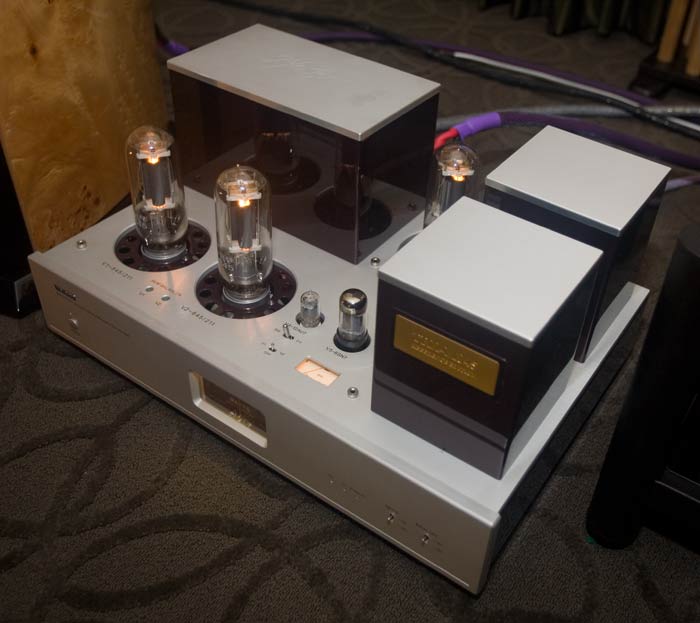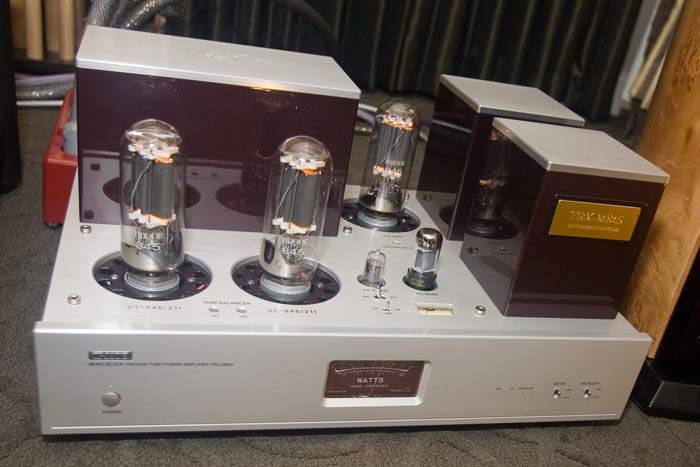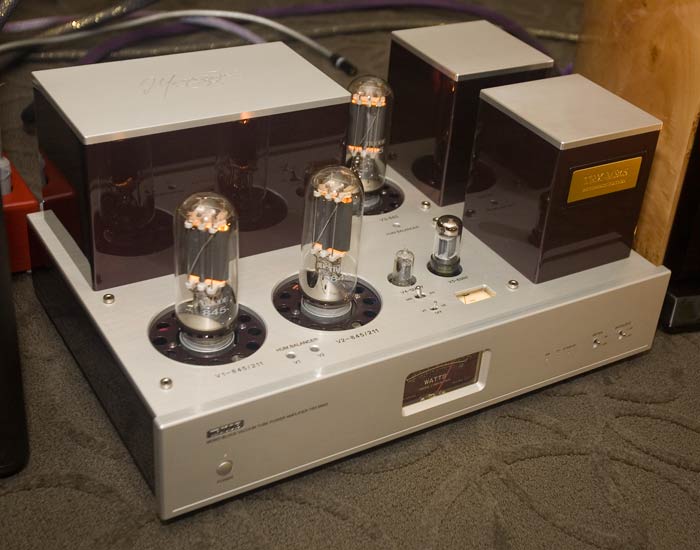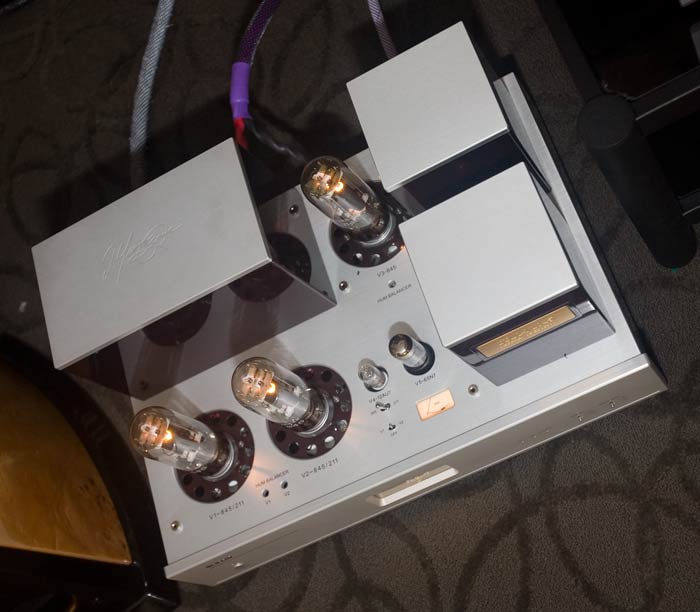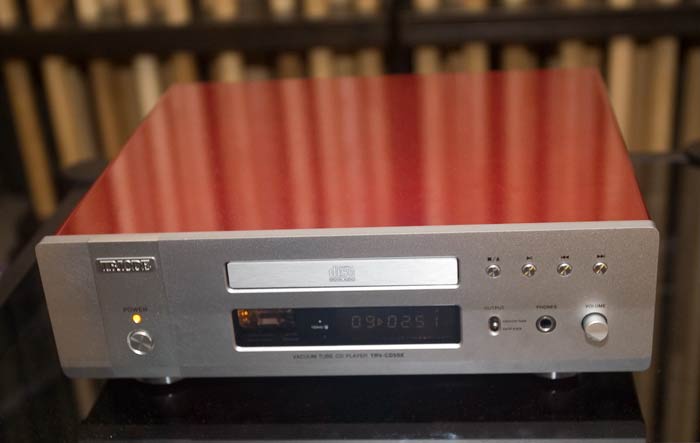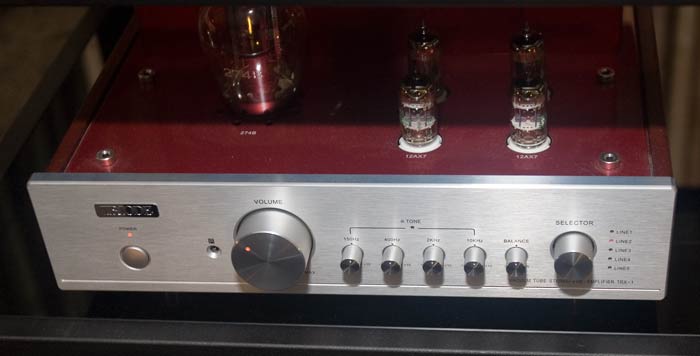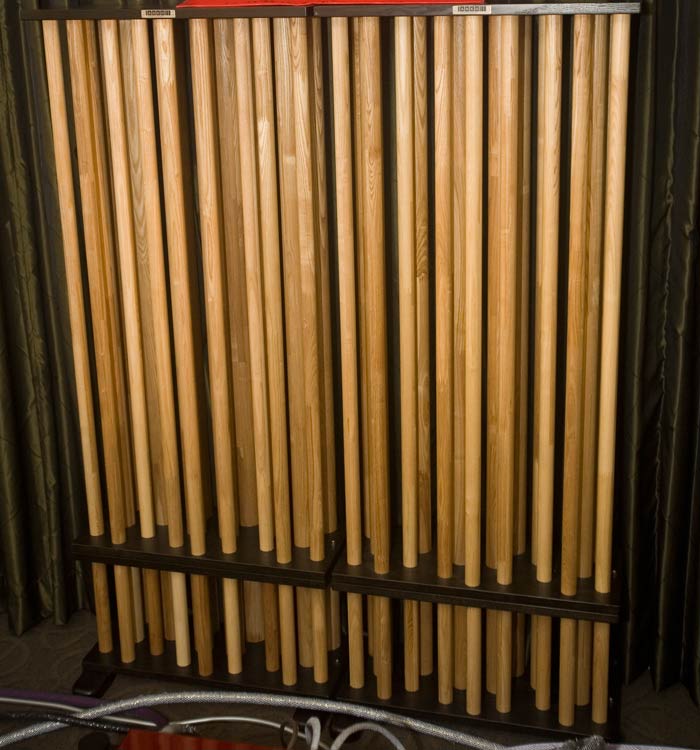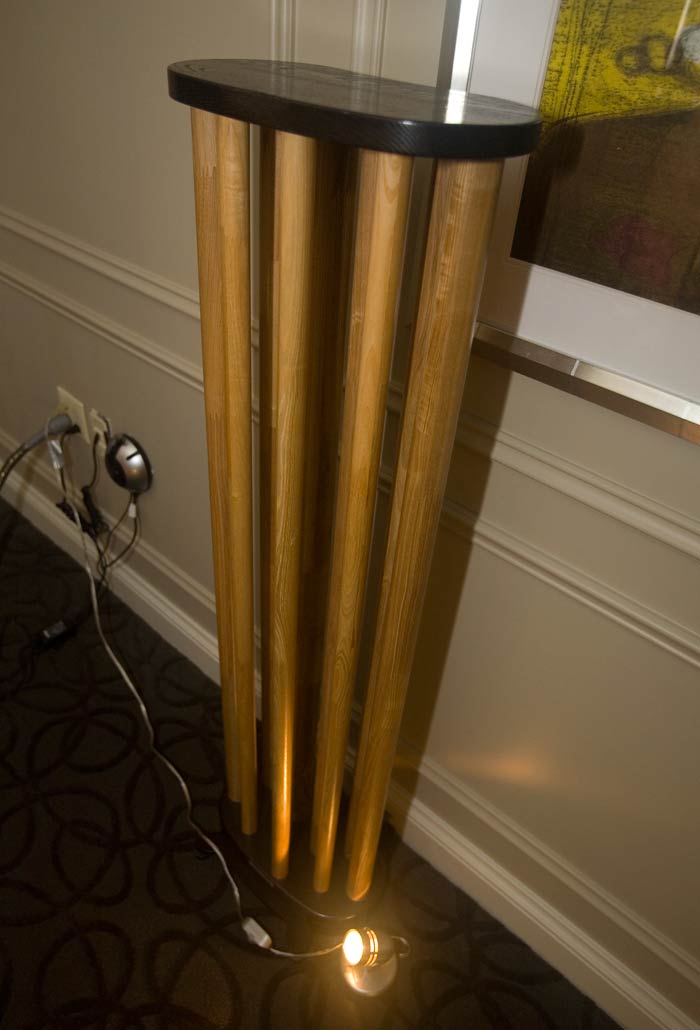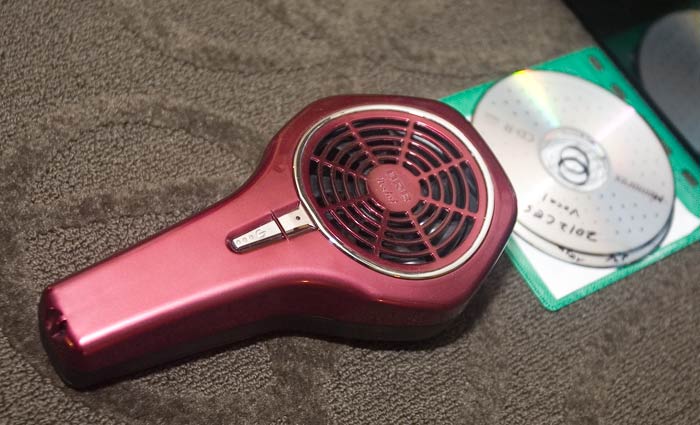[Similar to the RMAF 2013 show report – we will put the politically correct version for all ages and levels of audiophile, along with well over 1000 photos, over on Ultimist – and we will put the more opinionated report here on the blog, which we will call ‘Most Interesting of Show’, for people who are focused on Pursuing the Ultimate Music Experiences.]
There were actually quite a few rooms this year that we thought were interesting. Interesting sometimes due to an intriguing pairing of different brands of gear together and sometimes due to interesting sonics, and there were also a couple of exceptional sounding systems as well.
In no particular order:
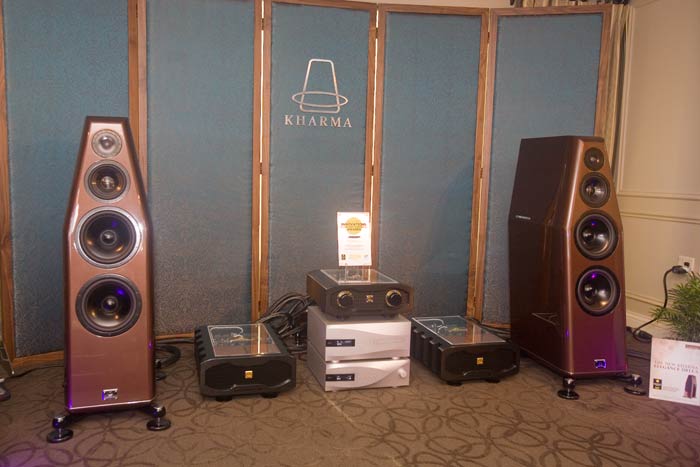
Kharma Elegance DB11S speakers on Kharma electronics and cables, dCS digital
I wasn’t happy with Kharma’s room last year at THE Show. It was cold and analytical. Not Kharma-ish at all.
This year’s room at the Venetian was way different. That old Kharma excitingness was back.
I have spent a lot of time trying to quantify and qualify this sound and what makes it different. It is definitively more exciting than most other speaker sounds [I used to compare it to how one feels about one’s girl (boy) friend versus how one feels about one’s wife (husband) – and I know none of us have girl (boy) friends, of course, but I think we can imagine just what that would be like just fine ;-)].
Is the midrange and upper bass slightly more dynamic than the rest of the frequency band? Are the mids more harmonically rich? I don’t know, but I do like it; although to hear it best I kind of have to sort of turn my mind’s ear and point it toward the 6th dimension [I don’t know how else to describe this].
Anyway, a bold sound, a little too much for the room but it worked much of the time. Very dynamic and powerful, especially in the upper to mid bass. Very harmonically rich and engaging. Uneven and not very linear top to bottom, however, and a little wild. But it was fun and exciting, so I liked it, especially in the context of the show where a lot of systems sounds are, whether good or bad, just plain boring.
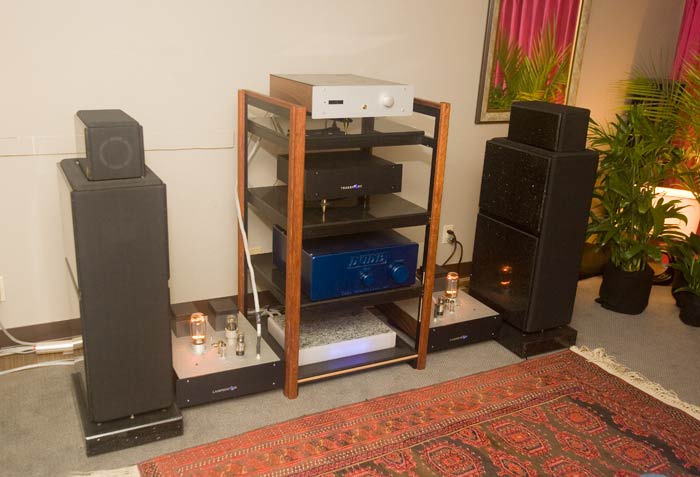
Theorem Imaging Science speakers on Lampizator electronics
These guys are so infuriating. We only got a very little time to listen to these before they drug us over to the next room to see their smaller system that was not playing any music. Argh.
I think this system is interesting because it did sound pretty darn good. Maybe they do wonders with cross-overs but I suspect it is the fact that the cabinets are made from granite and are so inert and stable that there is not much box coloration at all. And this is seemingly very, very important if you want to elevate your playback into state-of-the-art territory. All of the energy for each note goes into the note and not into warming up and vibrating some large chunk of wood or fiberboard or composite material. Lots of good separation and dynamics. Speakers that start with an aluminum, granite or perhaps carbon fiber cabinet enclosure have a real advantage over those that do not.
The harmonics also seemed quite rich [but not too rich] and musical as provided by the Polish Lampizator company.
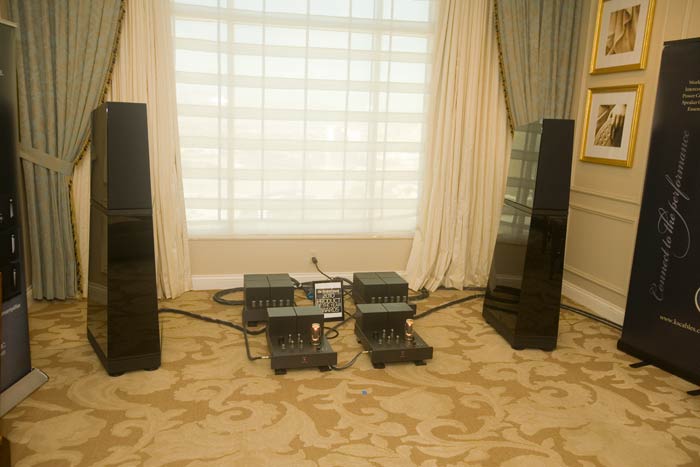
Lamm ML3 amps, LL1 linestage, LP2.1 phono, LP1 phono on Verity Lohengrin II speakers with Kubala-Sosna cables and HRS (under the TechDAS turntable) and Kanso rackage
We have a friend customer who has the ML3 amps on these the latest Verity Lohengrin II speakers [with Jorma cables instead of Kubala-Sosna and Audio Aero La Source front end, all on RixRax equipment racks with Harmonic Resolution Systems M3x isolation bases under everything]. His goal was [more or less] a sound that was always musical and never aggressive, otherwise with as high a resolution and as much accuracy as possible. That system succeeded wonderfully for him. He could spend 2 or 3 times as much and get something better [IMHO] but, heck, this is pretty gawd darn expensive already.
As I sat in this room and heard how much of the wonderfulness of the ML3 amps was not getting through to my ears, I still thought our friend bought the right thing… for him. But for me? I want to hear that amp. I know it to have wonderfully detailed and subtle harmonic and dynamic transitions that add so much [for me] to the music. And more.
But the speakers, and to some degree the cables, and perhaps even the unfamiliar Kanso equipment rack, were softening up the sound enough that I did not feel as engaged here as I did in previous years, or even as much as I did in the Lamm M1.2 amp on the Wilson Alexia speakers room next door.
[Vladimir Lamm swapped back and forth between the LP2.1 phono stage (which debuted this show. yes we have photos on the inside of the chassis to be posted on Ultimist) and the more expensive LP1 Signature phono stage, several times by using the two tonearms on the TechDAS at the same time [say what? this was fun]. With two very slightly different cartridges it was a little bit of a Fuji apples to Braeburn apples comparison, but the short and quick is that if you didn’t hear them back to back (the more expensive LP1 being smoother, less grainy, and just more of that good old analog wonderfulness) you would think you were already listening to the LP1 when it was in fact the less expensive LP2.1 all along (the original LP2 has been a giant killer among phono stages here at the Fed, at least until you get up into the $20-$30K range of the competition).]
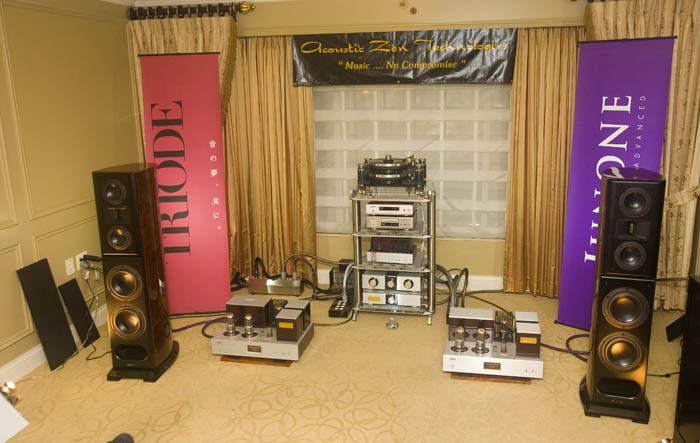
Acoustic Zen Crescendo Mk. II Speakers on Triode Corp electronics
It is funny [or not] when I read the better show reports and how they report on these rooms setup by Acoustic Zen and Triode Corp at all these shows. They point out something like that they heard a slight issue with the sound of a part of one of the tracks they played here. Ah, then this, they imply, can’t be best of show then.
What this really says to the perceptive reader who reads a lot of these things and thinks to themselves a little bit is that, hey, these rooms are such reliable performers, and it is so boring to keep awarding them the accolades they deserve, that they will dig deep down and find something [anything!] wrong so they do not have to put them somewhere on the BOS list yet again. The Lamm rooms experience this same thing.
Show reporters get so bored with seeing the same things each show [most of the gear, the setups, the people… it is all 98% the same from show to show] that they need to mix it up once in awhile and pick someone else as BOS, someone else to talk and rave about. And heaven forbid that they bore the readers [equals less traffic equals less ad revenue] by talking about the same old boring rooms that sound good, that perform well, each show after show after show.
And the speakers are only $18K? And the electronics are actually fairly reasonably priced?? BO-ring. Can’t get any more boring than this. Show reports got to be exciting wiiiild stuff, man…
They played music here. It sounded like music. It did nothing egregiously wrong and got a lot just right. It was immensely enjoyable. Like freaking always.
Well, I guess [and after all I am kind of a show reporter too…] I am also a wee tiny bit bored :-).
Yah, you know, each show it is the same… I can’t ever afford to spend a lot of time here [and this is what sucks about being a show reporter who actually goes to all the rooms (otherwise you have prejudged the show before you even arrive! Having decided what is best by the choice of what rooms you omit even visiting)]. You know I have to go and check out all those other rooms…
*sigh*

